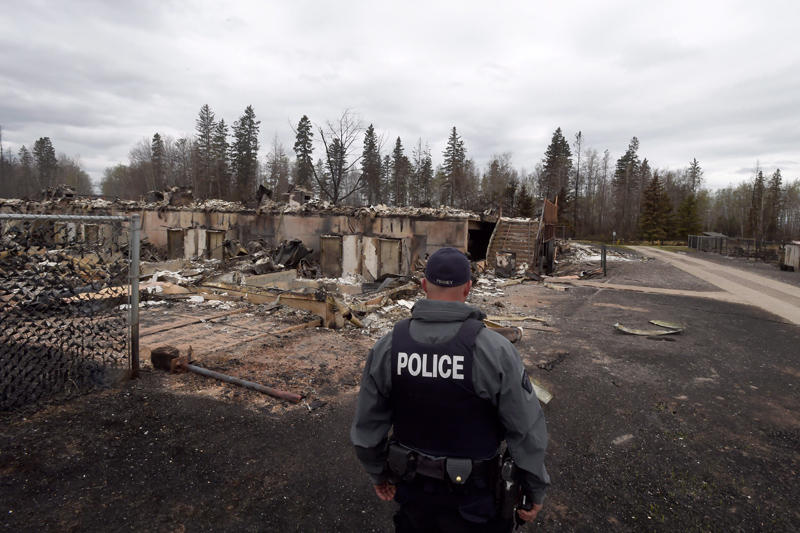About 2,400 buildings were destroyed in Fort McMurray last week by devastating wildfires, officials said Monday.

Will all of them be rebuilt, or will the northern Alberta city stay partly in ruins for years? It depends on oil prices, a University of Alberta urban planning professor explains.
“I can’t imagine that that would happen,” Leith Deacon says. “Of course, if oil stayed at $20 a barrel, and it’s not financially feasible, then there would be trouble.”
As Global News reporter Brian Hill reported last week, Fort McMurray homeowners who find themselves with badly damaged or destroyed houses face a stressful decision about what to do with their insurance claims.
Typically, home insurance policies cover either the cost of a new house in the same location or compensation for the value of the house as it existed.
With job losses in the oil patch that devastated Alberta’s economy even before the fires, some families whose Fort McMurray homes are smoking ruins may cash the insurance cheque and move on. (A TD report in April said that significant numbers of people were migrating from Alberta to B.C. in search of work.)
READ MORE: Fort McMurray wildfire: Homeowners to face difficult choice of whether to rebuild
Building a new house typically results in a larger payout, all other things being equal. But a new house in an isolated city with spiking unemployment may not be useful to a resident who was thinking of moving in search of work in any case. And if you were thinking of leaving anyway, a new house in Fort McMurray is only going to be worth what somebody is willing to pay for it.

Get weekly money news
READ MORE: Fort McMurray wildfire: Insurance companies begin preparing for fire claims
Real estate prices in Fort McMurray have fallen about 20 per cent over the last year, along with oil prices. Homeowners who bought at the top of the local market and had their homes incinerated at the bottom might have little or nothing left after paying off the bank, if they chose to walk away.
“A lot of these people, probably, have mortgages on their properties — it’s not as simple as just cutting your ties,” Deacon says. “A lot of people who moved there probably paid very high values for the lots and the house.”
It’s a strong incentive to stay and rebuild — assuming there’s a job.
However, capital spending on oil and gas in Alberta this year is expected to be less than half of what it was in 2014, a survey released by Statistics Canada today reported.
On the other hand, a rebuilding effort may stimulate an otherwise weak local economy.
READ MORE: Alberta’s economy doing worse than expected, TD report warns
Before and after: Fort McMurray’s Wood Buffalo neighbourhood
“I don’t think (house sites) will stay abandoned,” Deacon says.
“I understand that the price of oil currently is low, but unless something happens tomorrow that we suddenly don’t need petroleum products, I think there’s a future for Fort McMurray.”
“It might not rebuild as fast as it would have five years ago, when oil was at $100 a barrel, but I do think that what has happened will give them the opportunity to take a bit of a step back to figure out what is the best way to rebuild, and how you deal with the potential for future fires and the potential for future hard times.”

As the wildfire situation in Fort McMurray, Alta., appeared to stabilize Sunday, insurance companies across Canada have already begun deploying mobile response units and are flying in personnel to the province from across the country to prepare to assess the damage.







Comments